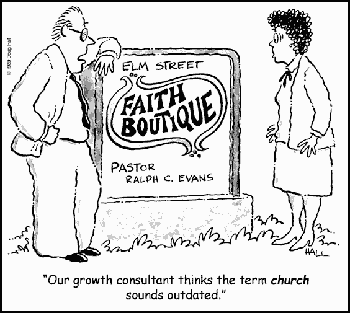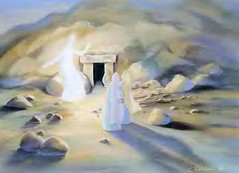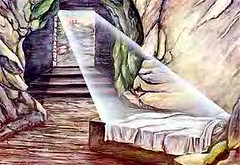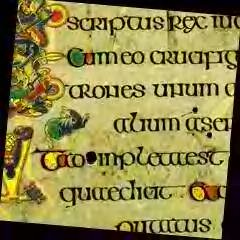
I thought I would introduce you to the Apostle of Common Sense
G.K. ChestertonAmerica is sometimes offered to us, even by Americans (who ought
to know better), as a moral example. There are indeed very real
American virtues; but this virtuous attitude is hardly one of them.
And if anyone wants to know what a welter of weakness and inconsequence
the moral mind of America can sometimes be, he may be advised
to look, not so much to the Crime Wave or the Charleston, as to
the serious idealistic essays by highbrows and cultural critics,
such as one by Miss Avis D. Carlson on "Wanted: A Substitute
for Righteousness." By righteousness she means, of course,
the narrow New England taboos; but she does not know it.
For the inference she draws is that we should recognize frankly
that "the standard abstract right and wrong is moribund."
This statement will seem less insane if we consider, somewhat curiously,
what the standard abstract right and wrong seems to mean--at least
in her section of the States. It is a glimpse of an incredible world.
She takes the case of a young man brought up "in a home where there
was an attempt to make dogmatic cleavage of right and wrong."
And what was the dogmatic cleavage? Ah, what indeed!
His elders told him that some things were right and some wrong;
and for some time he accepted this strange assertion. But when he leaves
home he finds that, "apparently perfectly nice people do the things
he has been taught to think evil." Then follows a revelation.
"The flowerlike girl he envelops in a mist of romantic idealization
smokes like an imp from the lower regions and pets like a movie vamp.
The chum his heart yearns towards cultivates a hip-flask, etc."
And this is what the writer calls a dogmatic cleavage between
right and wrong!
The standard of abstract right and wrong apparently is this.
That a girl by smoking a cigarette makes herself one of the company
of the fiends of hell. That such an action is much the same as that of
a sexual vampire. That a young man who continues to drink fermented
liquor must necessarily be "evil" and must deny the very existence of any
difference between right and wrong. That is the "standard of abstract
right and wrong" that is apparently taught in the American home.
And it is perfectly obvious, on the face of it, that it is not a standard
of abstract right or wrong at all. That is exactly what it is not.
That is the very last thing any clear-headed person would call it.
It is not a standard; it is not abstract; it has not the vaguest
notion of what is meant by right and wrong. It is a chaos of social
and sentimental accidents and associations, some of them snobbish,
all of them provincial, but, above all, nearly all of them concrete and
connected with a materialistic prejudice against particular materials.
To have a horror of tobacco is not to have an abstract standard of right;
but exactly the opposite. It is to have no standard of right whatever;
and to make certain local likes and dislikes as a substitute.
We need not be very surprised if the young man repudiates these
meaningless vetoes as soon as he can; but if he thinks he is
repudiating morality, he must be almost as muddle-headed as his father.
And yet the writer in question calmly proposes that we should
abolish all ideas of right and wrong, and abandon the whole human
conception of a standard of abstract justice, because a boy in Boston
cannot be induced to think that a nice girl is a devil when she
smokes a cigarette.
If the rising generation were faced with no worse doubts
and difficulties than this, it would not be very difficult
to reconcile them to the traditions of truth and justice.
But I think the episode is worth mentioning, merely because it
throws a ray of light on the moral condition of American Culture,
in the decay of Puritanism. And when next we are told that the
idealism of America is to set a "standard" by which England must
transform herself, it will be well to remember what is apparently
meant by a standard and an ideal; and that the fire of idealism
seems both to begin and end in smoke.
Incidentally, I must say I can bear witness to this queer taboo
about tobacco. Of course numberless Americans smoke numberless cigars;
a great many others eat cigars, which seems to me a more occult pleasure.
But there does exist an extraordinary idea that ethics are involved
in some way; and many who smoke really disapprove of smoking.
I remember once receiving two American interviewers on the same afternoon;
there was a box of cigars in front of me and I offered one to
each in turn. Their reaction (as they would probably call it)
was very curious to watch. The first journalist stiffened
suddenly and silently and declined in a very cold voice.
He could not have conveyed more plainly that I had attempted to corrupt
an honorable man with a foul and infamous indulgence; as if I were
the Old Man of the Mountain offering him hashish that would turn him
into an assassin. The second reaction was even more remarkable.
The second journalist first looked doubtful; then looked sly;
then seemed to glance about him nervously, as if wondering whether we
were alone, and then said with a sort of crestfallen and covert smile:
"Well, Mr. Chesterton, I'm afraid I have the habit."
As I also have the habit, and have never been able to imagine
how it could be connected with morality or immorality, I confess
that I plunged with him deeply into an immoral life. In the course
of our conversation, I found he was otherwise perfectly sane.
He was quite intelligent about economics or architecture;
but his moral sense seemed to have entirely disappeared.
He really thought it rather wicked to smoke. He had no "standard
of abstract right or wrong"; in him it was not merely moribund; it was
apparently dead. But anyhow, that is the point and that is the test.
Nobody who has an abstract standard of right and wrong can possibly
think it wrong to smoke a cigar. But he had a concrete standard
of particular cut and dried customs of a particular tribe.
Those who say Americans are largely descended from the American Indians
might certainly make a case out of the suggestion that this mystical
horror of material things is largely a barbaric sentiment.
The Red Indian is said to have tried and condemned a tomahawk for
committing a murder. In this case he was certainly the prototype
of the white man who curses a bottle because too much of it goes
into a man. Prohibition is sometimes praised for its simplicity;
on these lines it may be equally condemned for its savagery.
But I myself do not say anything so absurd as that Americans are savages;
nor do I think it would matter much if they were descended from savages.
It is culture that counts and not ethnology; and the culture
that is concerned here derives indirectly rather from New England
than from Old America. Whatever it derives from, however, this is
the thing to be noted about it: that it really does not seem
to understand what is meant by a standard of right and wrong.
It is a vague sentimental notion that certain habits were not
suitable to the old log cabin or the old hometown. It has a vague
utilitarian notion that certain habits are not directly useful
in the new amalgamated stores or the new financial gambling-hell. If
his aged mother or his economic master dislikes to see a young man
hanging about with a pipe in his mouth, the action becomes a sin;
or the nearest that such a moral philosophy can come to the idea
of a sin. A man does not chop wood for the log hut by smoking;
and a man does not make dividends for the Big Boss by smoking;
and therefore smoking has a smell as of something sinful.
Of what the great theologians and moral philosophers have
meant by a sin, these people have no more idea than a child
drinking milk has of a great toxicologist analyzing poisons.
It may be a credit of their virtue to be thus vague about vice.
The man who is silly enough to say, when offered a cigarette,
"I have no vices," may not always deserve the rapier-thrust
of the reply given by the Italian Cardinal, "It is not a vice,
or doubtless you would have it." But at least the Cardinal
knows it is not a vice; which assists the clarity of his mind.
But the lack of clear standards among those who vaguely think of it
as a vice may yet be the beginning of much peril and oppression.
My two American journalists, between them, may yet succeed in adding
the sinfulness of cigars to the other curious things now part
of the American Constitution.
I would therefore venture to say to Miss Avis Carlson that
the quarrel in question does not arise from the Yankee Puritans
having too much morality, but from their having too little.
It does not arise from their drawing too hard and fast a line of
distinction between right and wrong, but from their being much to loose
and indistinct. They go by associations and not by abstractions.
Therefore they classify smoking with vamping or a flask in the pocket
with sin in the soul. I hope at least that some of the Fundamentalists
will succeed in being a little more fundamental than this.
The men of Tennessee are supposed to be very anxious to draw the line
between men and monkeys. They are also supposed by some to be rather
too anxious to draw the line between black men and white men.
May I be allowed to hope that they will succeed in drawing a rather
more logical line between bad men and good men? Something of the
the difference and the difficulty may be seen by comparing the old
Ku Klux Klan with the new Klu Klux Klan. The old secret society
may have been justified or not; but it had a definite object:
it was directed against somebody. The new secret society seems
to have been directed against anybody; often against anybody
who drank; in time, for all I know, against anybody who smoked.
It is this sort of formless fanaticism that is the great danger
of the American Temperament; and it is well to insist that if men
must persecute, they will be more clear-headed if they persecute
for a creed.
















